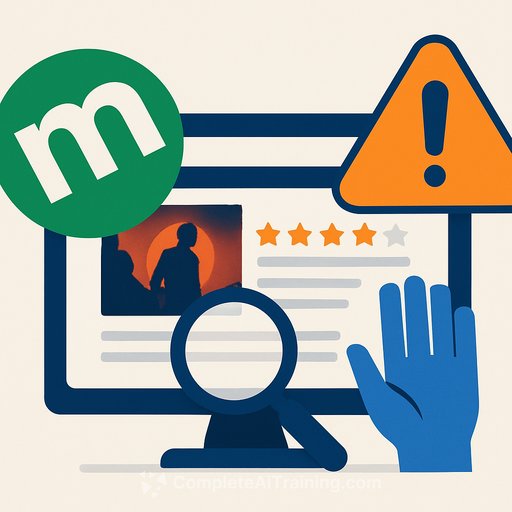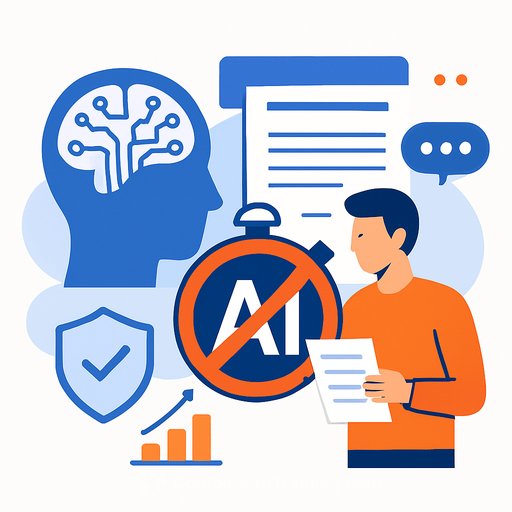AI-Generated Covers Push Two NZ Authors Out of Top Prize - What Writers Need To Do Now
Two acclaimed New Zealand authors were ruled ineligible for the Jann Medlicott Acorn Prize for Fiction after organisers confirmed their book covers were generated with AI. Elizabeth Smither's Angel Train and Stephanie Johnson's Obligate Carnivore were both pulled from contention for the $65,000 award within the Ockham New Zealand Book Awards.
A bookseller first raised concerns about unusual design elements. The New Zealand Book Awards Trust asked publisher Quentin Wilson Publishing to verify, and the publisher confirmed AI had been used, calling the outcome heartbreaking for the professional designers and distressing for the team.
Stephanie Johnson noted that authors usually have minimal input on jackets, though she had joked about a wicked-looking cat with fake teeth. She understands the push to set boundaries but believes the literary work shouldn't be discounted because of how a fictional cover was produced.
Nicola Legat, chair of the New Zealand Book Awards Trust, said the rules aim to protect creative and copyright interests and must apply to all entrants to stay fair. She added that the criteria may be revisited as practices change.
What changed this year
This was the first year AI restrictions were enforced across the awards. Entry documents stated books would be judged as complete works - including exterior design - and any title with AI-generated artwork or text would be ineligible.
Publisher Quentin Wilson said the covers in question were created months before these guidelines were published. He argued that major rule changes are usually signalled earlier, and clearer, more nuanced criteria could have been developed with more notice.
Why this matters to working writers
Your manuscript can be flawless and still get ruled out because of a production decision you didn't control. Many publishers outsource cover design, and AI use can slip in without explicit disclosure.
To stay eligible for prizes and retail channels, you need proof of provenance, clean licensing, and clear agreements with vendors. Treat cover art, typography, and interior illustrations as compliance-critical.
Practical checklist: protect your eligibility
- Add a "no generative AI" clause to your publishing and design contracts, covering images, type treatments, and any text elements.
- Require written disclosure of all tools used. Distinguish assistive tools (e.g., Photoshop, Grammarly) from generative models.
- Ask for layered source files and logs (file history, brushes, plugins) to verify process if questioned.
- Use licensed, indemnified assets only (e.g., reputable stock libraries with clear policies on AI-origin content).
- Get warranties that all imagery is either original photography/illustration or properly licensed non-AI stock.
- Request model and property releases where relevant; store them with the art brief.
- Include an artist credit and materials statement in your records, even if it doesn't appear in the book.
- Review award and retailer policies before final art lock. Screenshot the rules and date them.
- If AI was used unknowingly, replace the cover and keep a paper trail showing dates and corrections.
- Educate your team and vendors; make the policy unambiguous and part of every brief.
For publishers and designers
- Adopt a written policy on generative content, including edge cases (AI upscalers, AI fonts, AI texture fills).
- Tag assets in your DAM as "AI-permitted" or "AI-prohibited" to avoid mix-ups.
- Provide creators with approved tool lists and stock sources with indemnity.
- Keep version history and export settings. Provenance beats guesswork if a dispute arises.
- Offer a compliance summary with every final deliverable: tools used, sources, licenses, dates.
If your book is already in production
Audit the cover now. If anything is AI-generated, commission a replacement and document the changeover.
Notify your publisher, agent, and any prize administrators before submission deadlines. A proactive fix beats a public disqualification.
Context and next steps
The New Zealand Book Awards Trust says the rules reflect sector-wide consultation and fairness, and they may revisit criteria over time. Writers should move first: set clear terms, keep records, and verify every asset tied to your name.
For reference, see the awards' official site for updates and criteria: Ockham New Zealand Book Awards. If you want structured guidance on AI policies and workflow hygiene for creators, explore practical courses by job: Complete AI Training - Courses by Job.
Related note: Hungarian author László Krasznahorkai was recently announced as the Nobel Prize in Literature laureate.
Bottom line for writers: treat your cover like part of the manuscript. Set rules in writing, demand provenance, and keep proof. That's how you protect eligibility, credibility, and your shot at major awards.
Your membership also unlocks:





